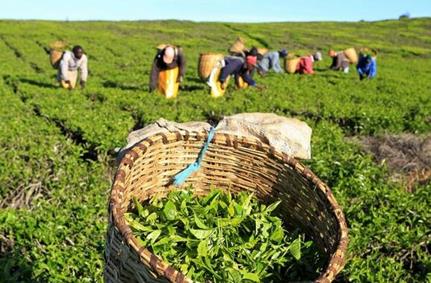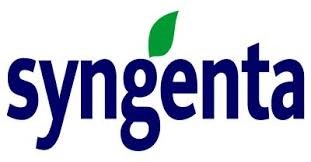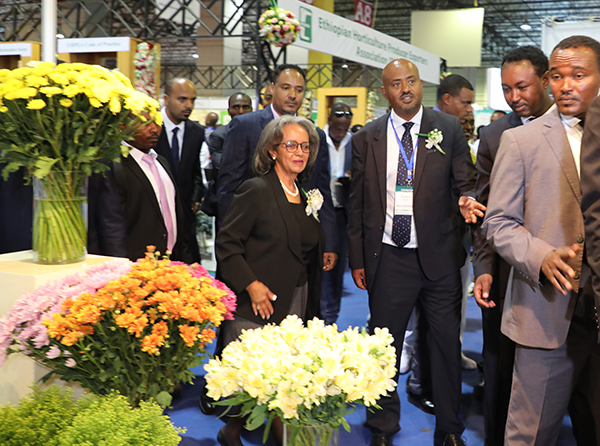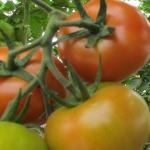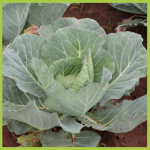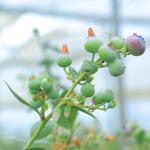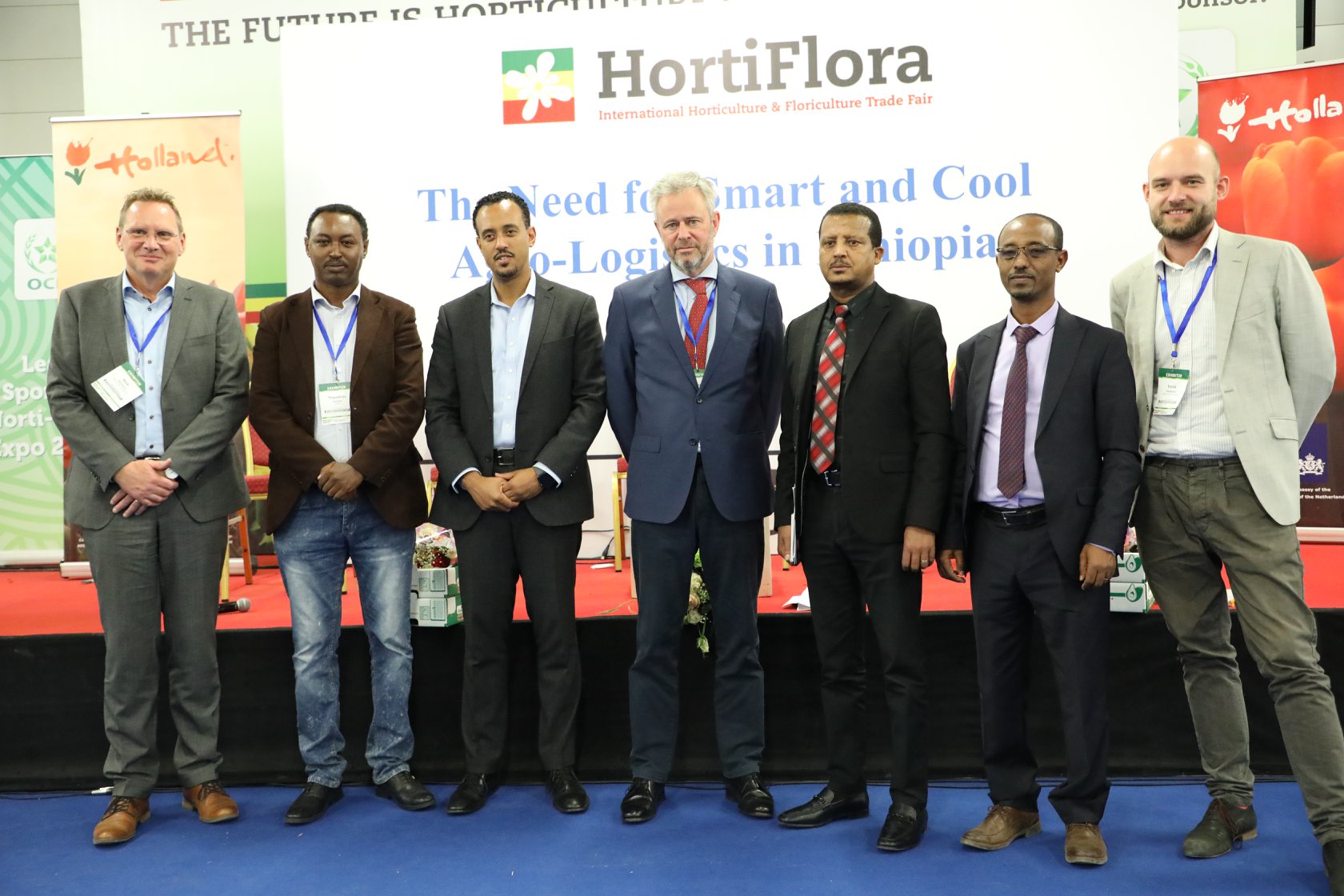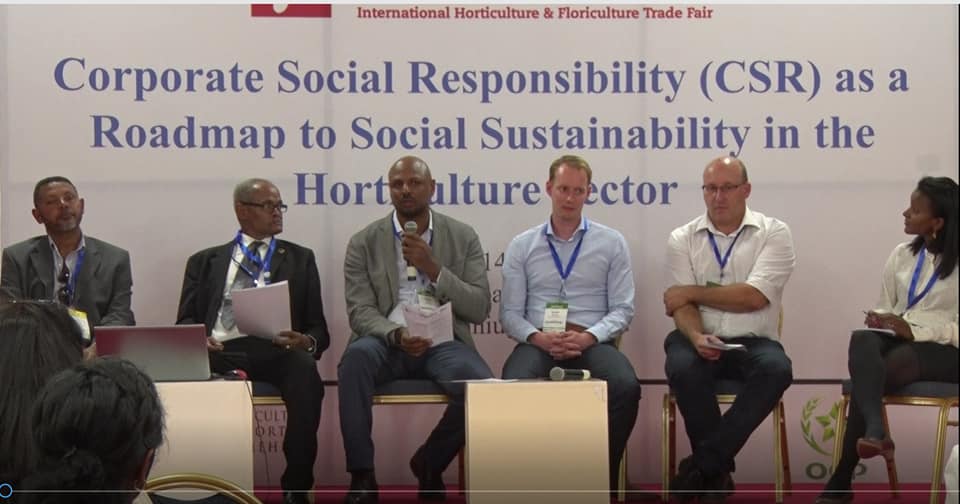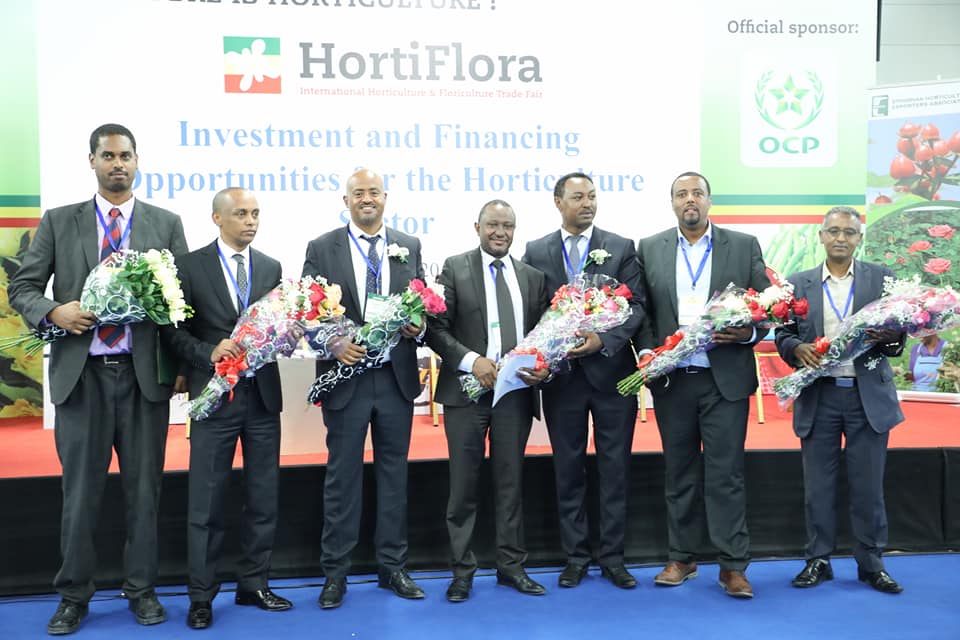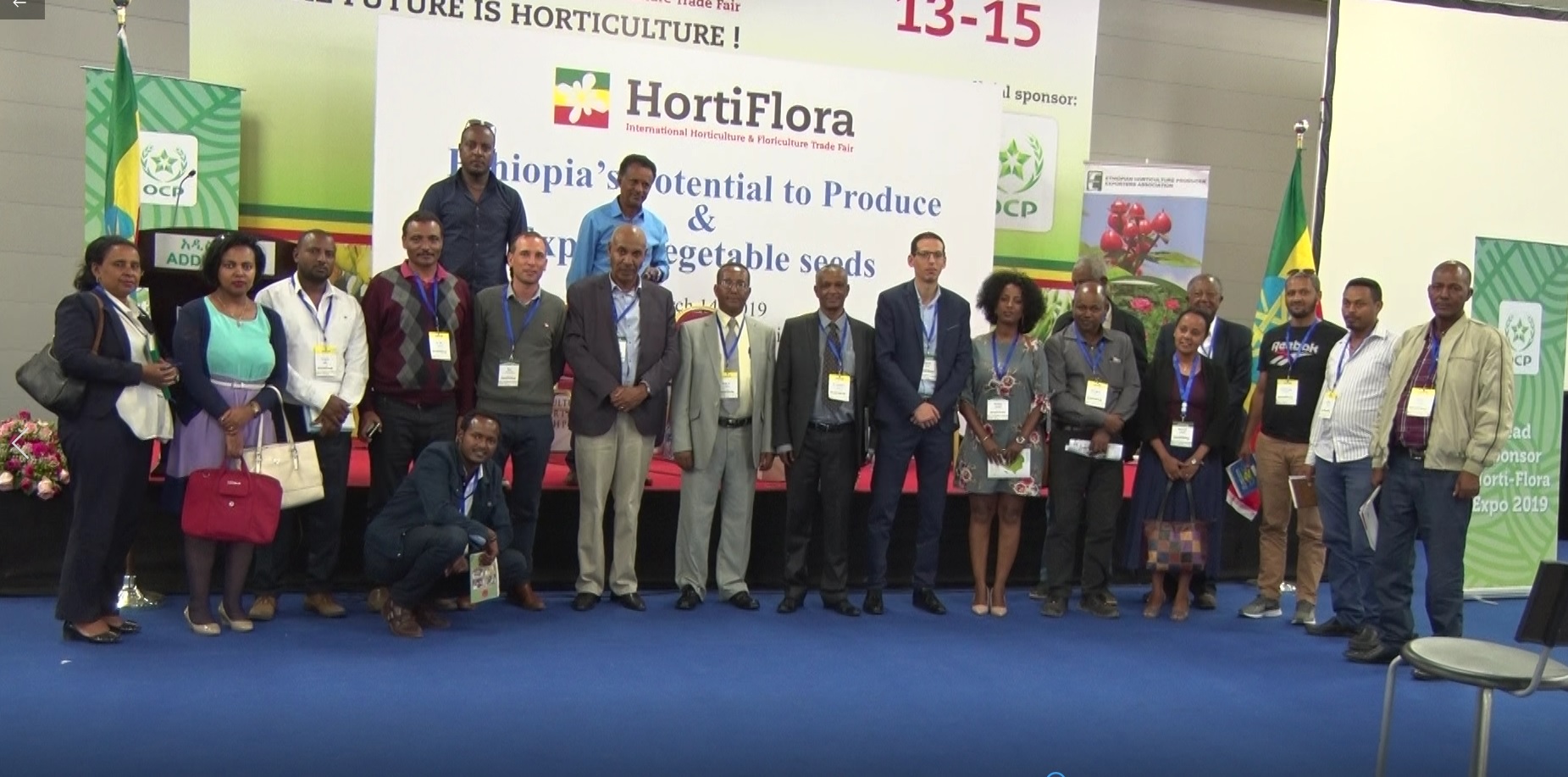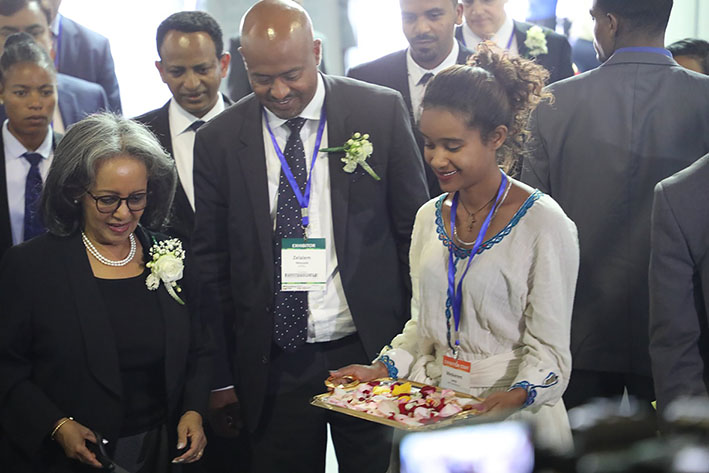The Ministry of Agriculture of the Federal Democratic Republic of Ethiopia is carrying out preparation activities to take part in the International Beijing Horticulture Exhibition to be held in Beijing, China from April 29-October 7, 2019.
At this event, over 197 countries and 16 million visitors are expected to show up. In order to make active participation in the event, Ethiopia has already started booth construction on 50 sq. meters area designated for it. To this end, actions are underway to fully take advantage of the event to penetrate Chinese market, forge market link, exchange experiences thereby promoting the advantageous investment atmosphere available in the country.
In similar development, the African Union Commission Department of Rural Economy and Agriculture is taking actions towards identifying and selecting a number of relevant horticultural enterprises across the continent to exhibit their products and services at the exhibition.
Beijing International Expo (BIE) is an international horticultural exhibition hosted by Chinese Government and organized by Beijing Municipal Government. It is the Expo of largest scale and highest level after 1999 Kunming Expo and 2010 Shanghai Expo. With ‘Live Green, Live Better’ as the theme and ‘Integrating Horticulture into Nature and Touching Souls with Nature’ as its philosophy, the expo park covers a total area of 503 hectares in Yanqing district, in northern part of Beijing.
The Expo is expected not only to demonstrate the application of most advanced technologies as well as featured horticultural achievements from all over the world but also showcase the progress China has made in the development of both horticulture (including flowers, fruits, vegetables, medicinal plants and tea) and ecological civilization at large.
Month: March 2019
Parliament ratifies Ethiopia’s membership to AfCFTA
The House of People’s Representatives (HPR) earlier this week approved Ethiopia’s membership to the Africa Continental Free Trade Agreement (AfCFTA). The AfCFTA, one of the biggest trade agreements since the creation of the World Trade Organization (WTO), aims to create a single market in Africa.The African Continental Free Trade Agreement (AfCFTA) was endorsed by leaders of more than 40 countries in March last year. Since then more countries have joined the agreement, including Ethiopia.
The AfCFTA is meant to create a tariff-free continent that can grow local businesses, boost intra-African trade, revamp industrialization and create jobs. The agreement creates a single continental market for goods and services as well as a customs union with free movement of capital and business travellers.
Countries joining AfCFTA must commit to removing tariffs on at least 90% of the goods they produce.If all 55 African countries join a free trade area, it will be the world’s largest by number of countries, covering more than 1.2 billion people and a combined GDP of $2.5 trillion.
Following the decision, the African Union has expressed appreciation over Ethiopia’s ratification of AfCFTA which brought the number of ratifications on the continent to 21.
Kenyan horticulture farmers urge gov’t to review policies
Kenyan horticulture farmers urge gov’t to review policies
Kenya’s fresh produce farmers on Wednesday (March 27) called on the government to provide a conducive business environment to help make the horticultural sector competitive.
The Fresh Produce Consortium of Kenya CEO Okisegere Ojepat said the sector has faced stringent and lengthy clearance processes, multiple taxations and levies, high energy costs, and trade restrictions, which has made Kenyan horticultural products less competitive in the regional and international markets.
“The sector has been adversely hit by the imposition of the 16 percent VAT on pest control products, among other unfavorable conditions, which has made our products more expensive even in the east African region,” Ojepat said in a statement issued in Nairobi.
“We are lamenting about cheap imports from the neighboring countries like Uganda but we are not asking ourselves how Ugandans are able to produce these goods cheaply,” Ojepat said during the launch of the Fresh Produce Consortium of Kenya 2019-2024 Strategic Plan in Nairobi.
He said the six-year Strategic Plan would address several other issues affecting the horticultural sector including product safety issues and coalition building to ensure that various organizations work towards a common goal.
The consortium has also signed a memorandum of understanding (MoU) with several organizations including the Nairobi chapter of the Kenya National Chamber of Commerce and Industry and International Trade Centre through she trades to help it address the issues related to trade in horticultural products, both locally and internationally.
Ojepat said the consortium is keen to have matters that hinder trade in the horticultural sector addressed urgently. “We are keen on ensuring there is market access to products and also that the final products traded locally and globally meet the safety standard,” he said.
Kenya’s earnings from fresh produce exports in 2018 jumped to 153.68 billion shillings (1.53 billion U.S. dollars), a 33 percent increase over 2017 earnings, according to statistics from the industry.
Warm weather boost for garden center sales in February
The March 2019 issue of HTA Market Update reports that nationally, garden center sales recovered well this year from last February, which saw the ‘Beast from the East’ cause major disruption. Despite starting off cold, February 2019 was recorded as the warmest February since 1998.
The report shows that comparing February 2019 vs February 2018 sales were up a significant 35%. The rolling year to February 2019 vs 2018 shows sales up by 5%. Calendar year to February 2019 vs 2018 sales are up by 25%.
2017 is added in to the report to add a further comparison to this year’s sales and reveals that hardy plants have experienced an impressive 42% growth over the last 2 years.
HTA Director of Operations, Martin Simmons comments “It’s great to see strong sales in February. The ‘Beast from the East’ last year had a dramatic effect on our sector but when compared with February 2017 it’s encouraging that this year retail sales are up across all categories. HTA nurseries are also reporting strong performance suggesting that this is being replicated in the wholesale sector and demand for UK grown plants is strong. Given the current economic instability this is an encouraging start as we build towards the peak season”
The overall consumer confidence index score increased by one point in February but remains three points lower than February of last year. Concerns over Brexit deals and the UK’s economic situation remain; with consumers less confident and looking to save more.
The trend pick for this month’s Market Update looks at Foresight Factory’s ‘Light relief’ trend which highlights how the way people want to spend their leisure time is changing, with a growing desire for using leisure time to just relax rather than learn new things or complete tasks.
The March edition of HTA Market Update issue looks at garden centre sales, overall market performance.
Youth employability a key issue for agri sector
The agriculture sector, which employs just under a million people in South Africa according to Statistics South Africa (StatsSA), is calling for a solution to its youth employability challenge. This was a key takeaway from the Youth Employment Service (YES) participation at the recent Citrus Growers’ Association summit held in Port Elizabeth.
“Lack of viable and sustainable youth employability solutions was a clear issue for all stakeholders,” said Lara Grieve, YES business development manager.
“What was clear was that the agricultural sector is looking for a more collaborative approach to the unemployment challenge, bringing government and the commercial players in the agriculture sector together.”
YES has become one of the highest impact programmes in SA, creating an average of nearly 700 work opportunities every week in the first five months.
These opportunities provide unemployed young black people, between 18 and 35 years old, the chance to enter the workforce, gain valuable skills and earn a basic wage. YES youth are equipped with smartphones to learn skills including work readiness, health and safety, financial wellness and more through the YES application. YES also enjoys a strategic partnership with LinkedIn. This means that YES youth can access one of the largest professional networks in the world to build CVs and references that put them in front of potential future employers.
YES offers attractive benefits to businesses looking to improve their broad-based black economic empowerment (B-BBEE) scorecard rating. Qualifying businesses can improve their B-BBEE rating by one or two levels, by employing and absorbing young people from YES, in line with the practice note issued in October last year.
“Agriculture is an important sector in the South African economy,” said Tashmia Ismail-Saville, YES chief executive. She drew attention to the over-concentration of youth looking for work opportunities in Gauteng who found themselves competing with highly-skilled people for entry-level jobs.
Ismail-Saville said South Africa would benefit from a decentralized workforce in which jobs are created in developing parts of the economy.
“By creating employment in the agriculture sector, salaries and skills are retained in these regions, contributing to economic development. If we create 1,000 entry-level jobs in regions like Limpopo or towns like Nelspruit, we put R42m into the local economy.”
Syngenta Flowers successfully disposed of expired chemicals
Ethiopia Cuttings/Syngenta Agro Services Agency/ has successfully disposed of ten tonnes of chemical waste recently.
Needless to mention, chemical waste disposal has been one of the most tempting assignments for factories in many countries.
One of the best performing farms in Ethiopia’s horticulture sector, Ethiopia Cuttings, has cautiously carried out the task with the assistance of Polyeco, Greek international firm, well-versed in waste chemical disposal.The firm took over the responsibility after it won a bid announcement made by Syngenta.
According to the bid agreement, the international firm was paid 54,000 Euro and thus, carefully transported the waste out of the country which Syngenta accumulated for over a decade. As regards the disposal process Syngenta has closely audited as to how the firm carried out the activity.
EHPEA wants to provide support to other developers to apply Syngenta’s experience to their farms in the sector. Syngenta’s move could be hailed as a great achievement for the country’s horticulture industry because there has been widespread misconception that chemical waste disposal is something that is left to the government alone. Modeling themselves on Syngenta other companies could take the initiative thereby getting rid of similar waste in their environs.
“Ecuadorian flower companies suffer impact of theft”
In the Ecuadorian province of Cotopaxi, floriculture is one of the sectors contributing the most to the creation of employment, given that it also markets one of the world’s most demanded products.
However, despite being one of the groups that contribute the most to the national and local economy, they feel like they are tied hand and foot, because they are victims of crime, which generates huge losses every month.
This was confirmed by José Merizalde, of the flower company Merizalde Ramírez, who said that they have already denounced this fact and have not yet received an effective response.
According to the Cotopaxi flower growers association, two million dollars’ worth of flowers are stolen across the province each year. According to the floriculturist, the “flower thieves” enter at night and steal the product in large quantities, and there’s nothing they can do, since the security guards are not qualified to act or be armed. “The guards prefer to turn a deaf ear, because if they tried to protect the farm, they may get hurt by the criminals.”
According to Paulina Hinojosa, owner of a flower company in the Salcedo sector, there are dozens of trucks that go out to sell the product in stores, and their owners have no farms, or greenhouses, or crops, and do not even issue invoices, and therefore sell the product a lot cheaper. Hinojosa stressed that the police as a whole, together with other control authorities, should carry out more operations to prevent this, as this situation is worrisome and has taken a huge toll on profitability. “We are monitored all the time, but criminals can do whatever they want.”
Currently, floriculturists are getting ready for Mother’s Day sales.
Strawberry breeder accuses competitor of patent infringement
Watsonville, Calif.-based Driscoll’s Inc. has filed a complaint in federal court against Strawberry breeding company California Berry Cultivars and the company’s co-founder Douglas Shaw. A spokesperson for California Berry Cultivars could not immediately be reached for comment.The lawsuit, filed in the Sacramento Division of the Eastern District of California, alleges patent infringement and conversion of Driscoll’s proprietary strawberry varieties, according to a news release.
Plant patents and plant breeder rights are protected under international and U.S. legal systems.
“Driscoll’s has made it our mission to produce fresh berries that consistently delight consumers through a hallmark of great flavor. We’ve been able to differentiate the flavor of our berries by investing in our dedicated, traditional breeding program, which provides exclusive varieties to hundreds of independent family farmers,” Driscoll’s chairman and CEO Miles Reiter said in the release. “We believe in a fair and competitive marketplace, and will take required actions to protect our research, patents and proprietary varieties.”
This suit follows earlier litigation between UC Davis and California Berry Cultivars (CBC) in May 2017, according to the release, where a jury found CBC had committed willful patent infringement. As a result of the trial, certain CBC breeding records were made public, according to the release. Those records, Driscoll’s said in the release, reveal that CBC had been breeding with several of Driscoll’s varieties.
“We will stand up for our patented varieties and the farming families who rely on our breeding programs,” said Driscoll’s general counsel Tom O’Brien said in the release. “Driscoll’s and all of the strawberry breeding programs in California have an interest in fostering fair competition that benefits consumers and growers. We cannot and will not abide by the illegal and unauthorized use of our varieties and believe that all breeding programs should be protected from these kinds of actions.”
KWIN: the best book about Dutch greenhouse horticulture
The KWIN (Quantitative Information) is famous. Already in 1983 the first edition of this bulky book about the greenhouse horticulture was published. The KWIN contains quantities and prices of, among other things, sustainable means of production, labor, energy, production and sales of Dutch horticulture, of more than 100 crops or business configurations. This spring, the Greenhouse Horticulture Business Unit of Wageningen University & Research is publishing the twenty-sixth edition of KWIN.
The origin of the KWIN was issued by the joint Dutch test stations. WUR has since taken over the task. The data comes in part from energy and production models. In addition, a large group of growers and advisers from the various crops are asked to cooperate.
The topics relate to different levels. At the European and national level it is about trends in the areas per sector. Production and operating costs are discussed at company level. This includes labor, energy, fertilization, crop protection, plant material, packaging and sales. Also the interest and depreciation of sustainable means of production are displayed.

Area development of the greenhouse horticulture sectors
Interesting calculations can be made with all that information. Part of it is standard in the KWIN. Examples are production (in kilograms or in pieces) per square meter/per period and cost price per unit of product. In addition, the KWIN also specifies the footprint per product (the environmental impact).
This information and calculations are interesting for various parties, such as banks, insurers, consulting firms and investing entrepreneurs. Moreover, trends and developments can be searched for over a longer period of time. The comparison of several KWINs, for example, shows that thanks to higher production per m2, the cost price for many products has hardly changed in recent years despite the higher costs per m2.
“Demand for locally grown produce will only grow”
Indoor Ag-Con heads to Red Rock Resort from May 22-24, 2019 for its 7th annual Las Vegas edition.
Dan Plant, Co-Founder and Co-President of Calgary, Alberta-based indoor farming company MVP Farms, is joining the Indoor Ag-Con 2019 Conference lineup’s Business Track, where he will be speaking on “Spotting A Great Location.”
When he and his business partner, Matt Vanderberg, first started searching for opportunities back in 2016, they set some key constraints.
“We came at this from an asset management perspective and, like anyone else, have an affinity for recession-proof businesses selling into deep markets. So, capital-intensive, controllable and predictable food production had a ton of appeal,” Dan explains. “But more importantly, we thought back to the time each of us had spent working on farms and hanging out with farmers. Again, the technology, facility construction, operations management are all super cool features of this venture, but it is the quality of produce and the direct connection to our customers, making them happy through fresh food that will sustain us for decades. We don’t want to work for another company ever again.”
“We are not going to rush into anything. And we are not going to do anything that isn’t technically superb,” Dan adds. “The demand for locally grown produce will only grow and the technology will only improve. It’s not to suggest that timeliness is irrelevant, it certainly isn’t, but we want to ensure that when we open for business that we have a system that is scalable, backed by superb production technologies and scientific expertise, and a business model that will allow us to expand regionally. And when I say scalable, that also includes a scalable business model—working with sales channel partners that have simple unencumbered access to the deep sources of demand. We’ve got funding in place for our first facility and are currently in the process of developing the grow and automation equipment.”
The organizers of Indoor Ag-Con checked in with Dan recently to learn more about thoughts around the industry, food safety regulations and future plans for his growing company. Read the interview here.
Indoor Ag-Con heads to Red Rock Resort from May 22-24, 2019 for its 7th annual Las Vegas edition. Themed “Growing the Future,” this year’s event moves to a new location and welcomes a number of new features, including a special hemp spotlight, exclusive white paper release, expanded exhibition floor and conference schedule.
Hortiflora Expo 2019: Visitors and Exhibitors Views
Hortiflora Expo 2019: Visitors and Exhibitors Views
We are very happy with the exhibition. We have made a lot of partnerships here. We are going to participate in the next edition as well. I would like to congratulate the organizers.
Roberto Moscoso, Bella Flower Group
It is good for us. We are glad that we took part. We met new customers who want to come on board. We got partners as well. We have learnt that Ethiopia has the largest potential in Africa.
Mohammed Iqbal Bholim, Dilpack Kenya
It was a successful exhibition. I met a lot of growers who are exhibiting here. For me, it was a shortcut to meet all the people here in one place.
Mathew, Koppert Biological Systems
It was very good. From the three-day expo, the opening and the last days were great. We made a lot of contacts. Many people visited our stand which was also interesting. We also promoted our farm and our produce especially our preserved flowers as they were exhibited for the first time this year.
Magali Mottier, Gallica Flowers
The exhibition was so good. We had a lot of enquiries. For me, it has been a platform to contact potential buyers and to reestablish our relationship with old customers. Meeting old customers on such occasion is important. And I think we were successful.
Darin Truluck, Haygrove Limited
The exhibition was nice. We met a lot of partners. Of course, we haven’t met many flower buyers. We have met also many suppliers which we have not expected. We are more than satisfied.
Peter Linssen, Linssen Roses
It was very good. A lot of people visited our booth. We are hopeful that we establish business here and we are very happy.
Noorul Chowdhari, Al Zayat Carton
Representing the food sector in Ethiopia, we expect further development of the sector. We are glad that Her Excellency the president of FDRE, Sahlework, in her opening remark, called on more stakeholders to join the production of fruits and vegetables. We aspire to see the sector with much more prosperity and development.
Yoram Perets, Gilboa Seeds
Agro-logistics described critical part of horticulture sector
The need for introducing smart and cool agro-logistics is extremely important for the development of Ethiopia’s horticulture sector. It was emphasized during the discussion that from production point to service delivery the cool chain should be one chain and inter-connected. Agro-logistics is a critical part of the horticulture sector because its export hinges on temperature-monitored mode.
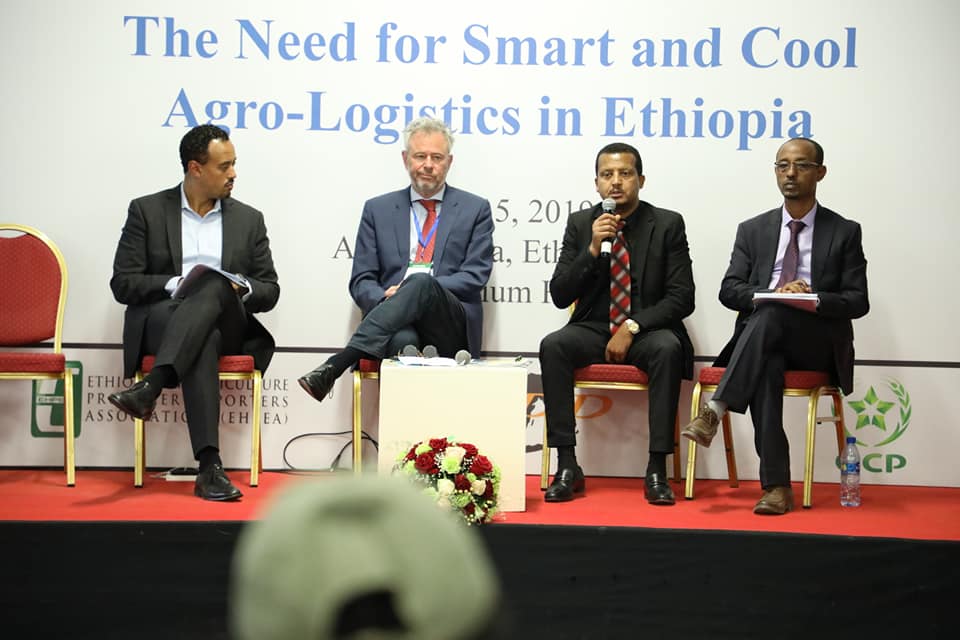
Ethiopian Cargo Managing Director Fitsum Abadi who was also a panelist on the occasion said that Ethiopian is investing in compartmentalized cold storage and training of human power needed in using the cool chain equipment. Moderated by the Netherlands Ambassador, Bengt Van Loosdrecht, the panel highlighted that there exists capacity gap in various sectors in the country’s logistics and that attention need to be given to the relationship between logistics and human resource.
CSR ensures sustainability, mutual growth
The panel discussion entitled “Corporate Social Responsibility as a Roadmap to Social Sustainability in the Horticulture Sector” reflected on the practices and challenges of doing responsible business in the horticulture sector.
A healthy horticulture sector is a socially responsible sector in which companies throughout the horticulture cluster balance social, ecological and economic considerations. The concept and practice of corporate social responsibility in the horticulture sector was convened in a panel discussion which was held as part of the HortiFlora Expo on Thursday March 14, 2019 at Millennium Hall, Addis Ababa.
This panel, chaired by Yassin Legesse, EHPEA board member, brought together both local and foreign experts.
Yassin underlined corporate social responsibility is no more an option but mandatory in the Ethiopian market. He added companies need to incorporate CSR in their overall company strategies and objectives.
According to participants, the concept of CSR is often neglected or underestimated in Ethiopia. Hence, continuous discussions and dialogue need to be organized.
HORTIFLORA EXPO PROVIDES PLATFORM FOR FRUITFUL DELIBERATIONS
Experts and panel participants said that easing ways of accessing finance and opportunities is instrumental in unleashing the horticulture and related sectors potential of the country thereby making meaningful contribution to national development.
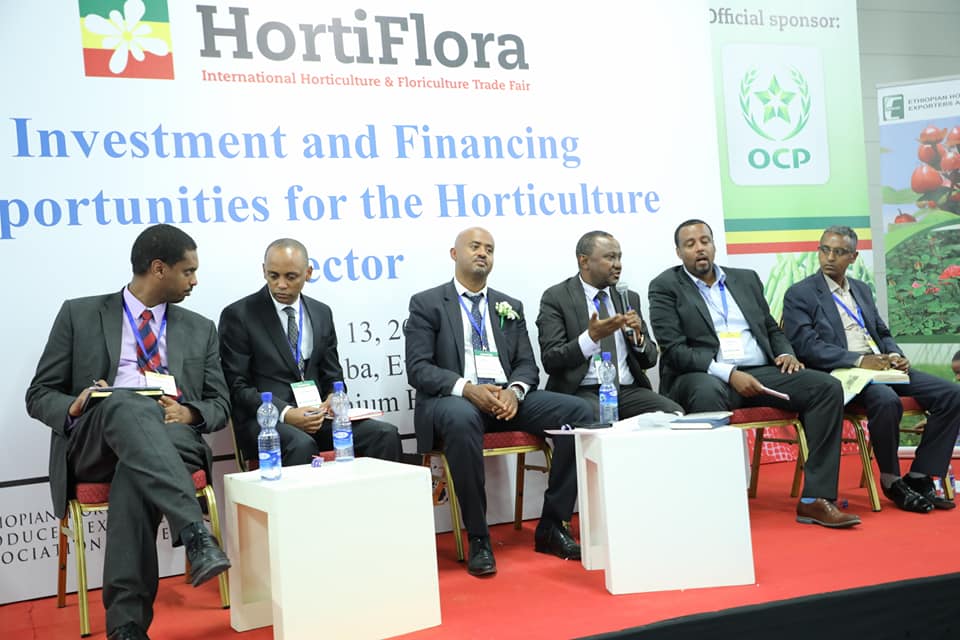
Chaired by EHPEA Chairman Zelalem Messele, Hortifloara Expo sideline event on ‘Investment and Financing Opportunities for the
Horticulture Sector’panel discussion was held on March 13, 2019 at Axum Meeting Hall, Millenium Hall in the presence of panelists withdrawn from the Oromia and Amhara Investment Commissions, the Development Bank of Ethiopia, Zemen Bank as well as German DG Bank.
The panel emphasized that exploiting opportunities at hand and expanding the horticulture sector could progressively enhance the nation’s earning from the sector.
It was noted during the discussion that the Development Bank of Ethiopia is expected to introduce better financing opportunities for investors interested to operate in the sector. Compared to the private banks the Development Bank of Ethiopia is providing the highest interest rate on loan. Thus, it was suggested by the participants that DBE needs to reconsider its regulation on loan and related procedures and create uncomplicated financing structure with the objective of encouraging ongoing and new investment undertaking in the field.
Towards realizing Ethiopia as ‘Africa’s Chille’
Hortiflora sideline deliberation conducted on March 14, 2019 the Millenium Hall on “Ethiopia’s Potential to Produce and Export Vegetable Seed” stressed on the need for reconsidering restrictions on smallholder farmers vegetable seed multiplication and strengthening of implementation capacity of relevant governmental body on vegetable seed multiplication.
Panelists indicated that the commitment of the Government of Ethiopia to allow more and more foreign direct investments and that there exist high chance for increased vegetable import and investing in vegetable seed production for export in Ethiopia.
One of the panelists, BASF Vegetable Seeds Ethiopia Managing Director and Country Head Ben Depraetere, pointed out that the conducive climate and diverse agro-ecology of Ethiopia allows the growing and production of all vegetables in Ethiopia.
Stating that Chille is world’s largest vegetable producer, Mr. Ben said Ethiopia has a lot of advantages to become “Africa’s Chille” in vegetable seed production. In this respect, strong regulatory system and policy framework should be in place to empower pertinent governmental organ administering national vegetable seed production. During the discussion OCP’s Amin Jemal highlighted the role of applying modern agri techniques particularly sound management of drip irrigation for the success of vegetable production.
The panel was moderated by Professor Derbew Belew of Jimma University’s College of Agriculture and Veterinary Medicine.
The 7th Hortiflora 2019 expo, an international horticulture and floriculture trade fair, was held in Addis Ababa.
The 7th Hortiflora 2019 expo, an international horticulture and floriculture trade fair, was held in Addis Ababa. The trade fair, themed “The Future is Horticulture,” was conducted at the Millennium Hall from March 13 to 15, 2019.
On the expo 115 national and international companies exhibited with a goal of “promoting their export produce, meet Ethiopian horticulture growers as well as showcase the country’s potential”. Horticulture input supply, different varieties of flowers, cuttings, fruit and vegetable seedlings, fruits, vegetable & herb were displayed.


Ethiopia’s President Sahle-Work Zewde, present at the opening ceremony, remarked that the horticulture industry is among the major employers and exporters in Ethiopia despite being only fifteen years old. She also called for increased efforts to extend what has been achieved in floriculture to other sectors in horticulture.
The fair was also a good platform connecting exhibitors with business opportunities, while presenting visitors with an array of choices that have to do with flowers for all occasions.



